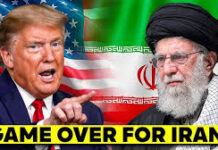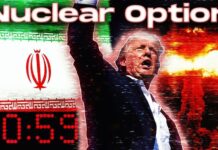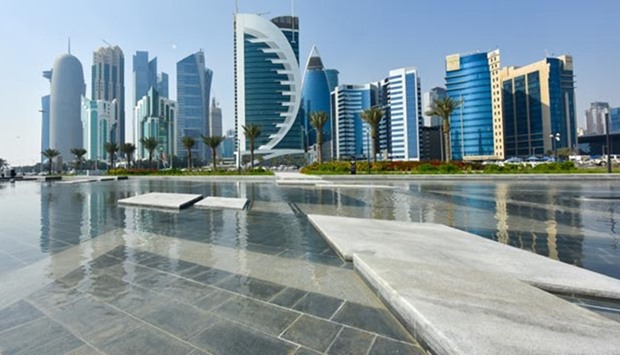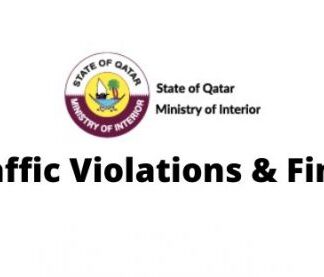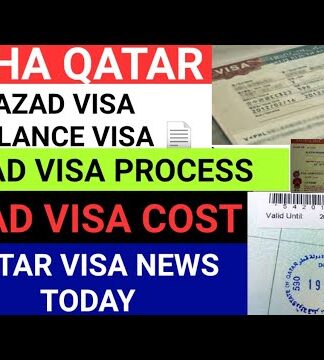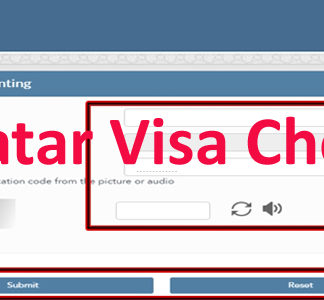Doha
*The law aims to promote economic development
*Attract foreign investments in all activities and economic and commercial sectors, attracting foreign capital inflows up to 100%
*Accomplish economic diversification in line with the Qatar National Vision 2030
*Facilitate foreign investors’ access to the market and improve the country’s confidence and investment security index
The Ministry of Commerce and Industry (MoCI) has highlighted the main provisions of the Law No. 1 of 2019 regulating the Investment of non-Qatari Capital in economic activity issued by His Highness the Amir, Sheikh Tamim bin Hamad al-Thani.
The law, MoCI said, aims at promoting economic development, attracting foreign investment in all economic and commercial activities, attracting 100% of foreign capital inflows, accomplishing economic diversification in line with the Qatar National Vision 2030, facilitating foreign investors’ access to the market and bolstering the country’s confidence and investment security index.
Non-Qatari capital investment regulations:
The MoCI said the first article of the law identifies a non-Qatari investor as a person who invests his money in any of the projects authorised for direct investment in accordance with the provisions of this law.
Non-Qatari capital, on the other hand, is defined as money, in-kind investments, or rights held by non-Qatari investors.
The law also outlines regulations governing the investment of non-Qatari capital, which is permitted in all sectors of the economy across the country. Investments may be undertaken after submitting a request to the competent department, which processes the application within 15 days.
A non-Qatari investor, whose application is rejected, may appeal to the minister within 15 days and the appeal shall be considered within 30 days.
A non-Qatari investor is prohibited from investing in the banking industry and insurance companies, except for companies excluded based on a decision of the Council of Ministers.
Non-Qatari investors are also prohibited from investing in commercial agencies and may be prohibited from investing in any other sector as decided by the Council of Ministers.
The law stipulates that non-Qatari companies tasked with the implementation of business contracts in Qatar must comply with the following regulations.
The execution of the contract shall be undertaken through the company’s branch in the country and the contract shall be ratified with a State or government agency, public institution or companies in which the State is a shareholder.
A non-Qatari company shall also have a commercial record and shall obtain a commercial licence for its branch, after procurement and before the signing of the contract.
Non-Qatari companies shall also fulfil all the requirements of government agencies, renew the contract and licence throughout the duration of the contract’s implementation and obtain the licence to undertake permitted activities in line with the provisions of applicable laws in the state.
The law allows non-Qatari investors to own a percentage not exceeding 49% of the share capital of listed companies, provided that the Ministry approves the proposed percentage.
A non-Qatari investor may also hold a higher percentage after the approval of the Council of Ministers upon the proposal of the Minister.
Investment incentives
The Ministry noted that the law provided several investment incentives for non-Qatari investors, including:
• The allocation of land to a non-Qatari investor to establish his investment project through rent or usufruct in accordance with the legislation in force in this regard.
• A non-Qatari investor may import necessary equipment to establish, operate and expand his investment project in accordance with legislations in force in this regard.
• Non-Qatari investment projects may be exempted from income tax in accordance with the procedures and regulations stipulated in the Income Tax Law.
• Non-Qatari investment projects shall be exempted from customs duties on imports of machinery and equipment necessary for their establishment. Non-Qatari investment projects in the industrial sector shall be exempted from customs duties on their imports of raw materials and semi manufactured goods that are required for production but are unavailable in local markets.
• The Council of Ministers may, on the proposal of the Minister, grant investment project incentives and benefits in addition to the incentives provided for in this law.
• Non-Qatari investments shall not be directly or indirectly, subject to expropriation or other similar actions, unless such actions are undertaken for the public good and in a non-discriminatory manner in exchange for a fair and appropriate compensation in accordance with the same procedures that apply to Qataris.
• A non-Qatari investor is free to transfer his investments from and to Qatar without delay. These transfers include the proceeds from the sale or liquidation of all or some of his investments, the proceeds of the settlement of investment disputes, and any compensation due to a non-Qatari investor.
• A non-Qatari investor may transfer the ownership of his investment to any other investor or relinquish it in favour of his national partner in case of a joint venture in accordance with legislations in force. The investment shall continue to be treated in accordance with the provisions of the law, provided that the new investor continues to operate the project and assumes the previous investor’s rights and obligations.
• With the exception of labour disputes, a non-Qatari investor may agree on settling disputes with third parties through arbitration or any other means of dispute settlement.
The Ministry noted that article 25 of Law No. (1) of 2019 on regulating the investment of non-Qatari capital in economic activity states that the provisions of this law do not apply to companies and individuals that the State tasks with the extraction, exploitation or management of natural resources through a concession or special agreement, except to the extent where it is not contrary to the provisions of the concession or special agreement.
The provisions of the law shall not apply to companies that the government establishes or in which the government and other public institutions and companies contributing at least 51% of the capital or less, in partnership with non-Qatari investors, provided that the Council of Ministers agrees, in accordance with the provisions of the Commercial Companies Law.
The provisions of the law shall also not apply to companies and individuals licensed by Qatar Petroleum to carry out petroleum operations or to invest in the oil and gas sector or petrochemical industries, MoCI said.
Source:www.gulf-times.com








